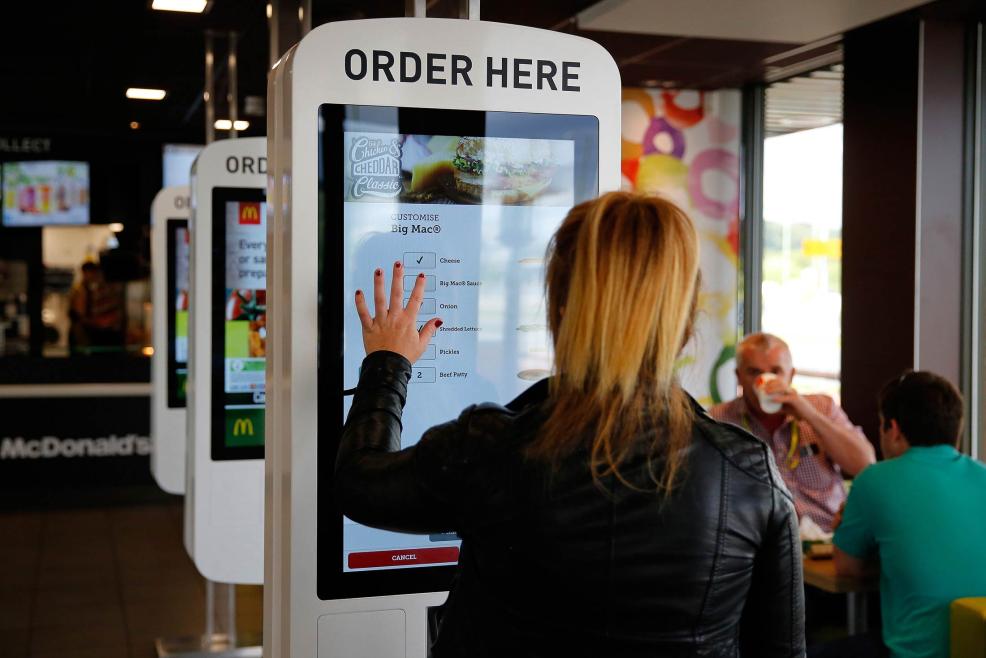
The Data Is In: Are CMOs Out?

If you’re a CMO reading the business pages lately, you might feel like it’s time to dust off your resume. A few weeks ago, McDonald’s announced it will eliminate its global CMO role and relegate marketing under two new positions: SVP of global marketing and SVP of marketing technology (martech), who reports to the CIO. McDonald’s restructuring is just one of many in a string of recent CMO casualties at major global companies. Both Uber and Johnson & Johnson did away with the job title back in June, and after Taco Bell's global chief brand officer announced her resignation, the company said they would not be seeking a replacement.
But before you start updating your LinkedIn profile, take a breath. The CMO role isn’t going away; it’s just getting an upgrade.
There’s major disruption going on in marketing, largely driven by the rise of martech that can more directly analyze customer behavior, track marketing spend, and measure performance. In the Mad Men era of advertising, successful campaigns were born from sudden moments of creative genius. The boss would run to their team with billion-dollar idea to wow audiences, and everyone would get to work executing that artistic vision. Today, they’d most likely want to consult with the IT department first.

Marketing teams are no longer just going with their gut. Instead, they’re focusing on making sense of their metrics and using data-driven analysis to drive business decisions. For those who got into the field as a way to express new concepts and build connections with people, they may fear that they’ll have to sacrifice those creative pursuits to cold logic or machine learning.
But marketing can’t be labeled as just a right-brain or left-brain activity. You need both the tech-supported insight and creative inspiration to design relevant campaigns based on the real-time needs and interests of your audience.
Uniting Marketing and IT Under One Roof
Taking a more scientific approach to marketing doesn't mean executives should spend their days pouring over Excel spreadsheets and endless dashboards. My main concern as a CMO is delivering the best customer experiences, and the way to achieve that is by using data to draw conclusions and take action. You can have the most expensive tools and the prettiest charts in the world, but if marketers don’t understand how all that information fits in the context of the customer journey, then that data is a burden, not an asset. Data-driven marketing happens when marketing and IT successfully share goals, objectives, and budget. CMOs who want to demonstrate measurable business impact without getting buried by too much data need to align their priorities with those of the CIO.
The composition of most marketing departments now includes more room at the table for data scientists and analysts. At Acquia, we’ve embraced collaboration between tech and marketing by making developers key players on the web and digital marketing teams and introducing data strategists into our marketing department. As the owners of the platforms and tools that conduct the data analysis required for driving marketing decisions, IT needs to be tightly integrated with the people who are building the brand. Your tech talent can’t be quarantined down the hall or in a separate building. They should be present for activities like persona building and customer journey mapping to make sure that these marketing approaches accurately reflect what they’ve learned about the customer. While the CMO role has transitioned to be more analytical, the CIO role is changing as well – moving from an internal focus on security operations and productivity to an external focus on building the systems necessary to drive business growth and innovation.
The Digital Revolution Will Be Led By Marketers
Even with strong marketing and IT partnerships in place, there are plenty of technology decisions that are better off living solely under the control of the marketing department. To stay competitive, marketers need to be agile and execute ideas quickly without navigating the roadblocks of lengthy IT approval processes. Just as Gartner predicted back in 2011, the CMO’s budget for technology spend is now larger than the CIO’s, and marketing is now the main leader in major martech buying decisions meant to drive business growth. A data-savvy CMO should own the tech decisions that directly contribute to orchestrating the customer journey, such as the brand website, lead scoring tools, and marketing automation platforms. While IT reports on customer data, creating customer experience and executing successful customer-brand interactions fall solely under marketing.
Turning Analytics Into Impact
Still worried that the CMO role has entered the career graveyard alongside switchboard operators or Blockbuster cashiers? Fear not — digital transformation may have made marketing even more valuable. Understanding customer data in real time at all points in the customer journey allows marketers to develop a more informed and proactive strategy to design better CX.

Increased access to martech tools has made it easier for marketers to use their data on customer preferences to deliver engaging digital experiences. This is only possible when IT supports marketing by helping to uncover valuable insights on who those customers are and what matters most to them on their journey. Identifying correlations in user behavior and drawing the right conclusions involves stepping back and listening to what your audience is telling you and having a two-way dialogue with them that leads to meaningful customer relationships beyond a one-time transaction. Not only should you optimize those early-stage touchpoints and assets to get someone to the customer stage, you also need insight into how customers continue to communicate with you, thus fostering long-term brand loyalty. Customer retention is the key to better business revenue and an essential way to demonstrate the ROI of all your marketing objectives.
With more listening tools, analytics dashboards, and digital channels appearing every day, marketers may feel overloaded with information, data fatigue that's making it harder to know what to pay attention to in their jobs. That’s where essential creative instincts and human understanding come back into play and help you turn information into action.
Doing this effectively requires both the right tech and the right person beyond the screen who is building relationships. To put it more bluntly: If the customers don’t feel like you’re listening and learning from the data they give you, they won’t stay with your brand for long. And if the customers don’t stick around, neither does the CMO.

